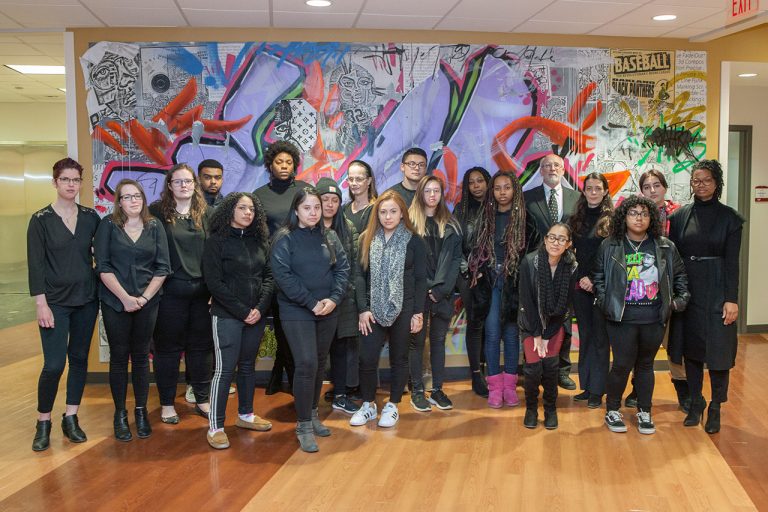- Apply
- Visit
- Request Info
- Give
#BlackOutDay Sparks Conversation on Healthcare Accessibility
Written by Raven Dillon
Published on March 11, 2019
 Eastern Connecticut State University hosted a #EasternBlackOut event on March 6 for students to discuss the disadvantages that women of color face in the healthcare system. The event was hosted by student ambassadors from the Intercultural Center (IC) and student leaders from the Multicultural Leadership Council (MLC).
Eastern Connecticut State University hosted a #EasternBlackOut event on March 6 for students to discuss the disadvantages that women of color face in the healthcare system. The event was hosted by student ambassadors from the Intercultural Center (IC) and student leaders from the Multicultural Leadership Council (MLC).
#EasternBlackOut events are hosted on the sixth day of every month. Those who attend are encouraged to wear all black to protest racial injustice against people of color.
Rebecca Loh, an IC ambassador and New Media Studies major, gave a presentation about healthcare statistics. According to the Institute of Women’s Policy Research, women of color are more likely to be uninsured, and doctors treat their symptoms less seriously and frequently misdiagnose their cases.
Eastern philosophy professor Ana Funes-Maderey spoke about accessibility issues in nontraditional forms of medicine. Many people of color, especially those of indigenous descent, seek alternative forms of medicine such as herbs, yoga or natural remedies.
“But even in these spaces there are barriers,” Funes-Maderey said. “When you think of the person who leads a yoga class, who is it usually? A thin, white, able-bodied, cisgender woman. And that fact alone can be very alienating to minority communities; it makes people feel as though the space is not for them.”
Several students discussed the challenges of going to the doctor and feeling alienated or misunderstood. A student shared a story about the difficulties finding a therapist who knew how to properly treat mental illnesses among women of color.
“I had a session with him where I was talking about micro-aggressions and racist experiences I’ve had, and at the end of it he said, ‘Wow, I’ve learned so much from you,’” she said.“And it just made me think: why am I teaching my therapist something? When are you going to help me?”


